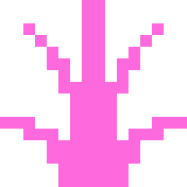

6 CHAPTERS connecting Cape Town, Windhoek, Nairobi, Kigali, Dar es Salaam, Bagamoyo, Dakar, Sinne Saloum, Joal-Fadiouth Berlin & Online
When The Jackal Leaves The Sun. Decentering Restitution | Pedagogies of Repossession unfolds through six chapters of interventionist and research-based cultural and artistic practices, accompanied by international legal expertise and activist engagement. The process of developing the project and its chapters centred anti-colonial resistance struggles and narratives on the African continent and in Germany.
When The Jackal Leaves The Sun takes up the tale of the Jackal and the Sun as a metaphor for and telling of the oppressive, coercive and violent structure that is colonialism and inquires about the Jackal’s empowered fate: What does it take for the Jackal to leave the Sun?
For over two years, When The Jackal Leaves The Sun embarked on a collective transdisciplinary process with the objective to create decolonial tools and interventions by way of installations, workshops and transdisciplinary artistic research formats, exhibitions, digitally mediated programs, discursive formats, performances and artist residencies, connecting Nairobi, Windhoek, Kigali, Dresden, Dar Es Salam, Dakar, Sinne Saloum, Jaol-Fadiouth, Cape Town and Berlin.
Jennifer Kamau and International Women* Space co-created performative architectures in public spaces in Berlin’s Oranienplatz with OplatzBox: The Refugee Movement Is The Movement of the 21st Century (2022). Together with many contributions and celebrations to commemorate the tenth anniversary of the successful two-year occupation of Oranienplatz, OplatzBox stood as a monument of the resistance and resilience of Black migrant women* refugees addressing the repercussions of the colonial enterprise with regards to migration to Europe.
Rehema Chachage’s Nitakujengea Kinyumba Na Vikuta Vya Kupitia / A Home For You I Will Create With Exit Pathways (2023), in collaboration with SOMA, created a collective intervention in Bagamoyo, the once designated capital of German [occupied] East Africa. Nitakujengea Kinyumba Na Vikuta Vya Kupitia / A Home For You I Will Create With Exit Pathways interrogated colonial cartography and built a home with exit pathways through traditionally feminist architecture and decolonial ancestral ecologies.
We Grow Between Rocks With Our Leaves & Flowers Turned Towards Home – Processions Pedagogies III (2024) by Memory Biwa brought together artists and intellectuals to re-imagine extracurricular resources on anti-colonial resistance and memorial processes. Reflecting on multiple modalities of repossession on land, across the transnational geographies along the Cape-Namibian route, drawing on imaginaries grounded in poetics of memory of resistance and embodied restoration.
Tonight the city + + is a tectonic bone radio—, Our ancestors are on every channel + + + (2024) by Suza Husse with district*school without center created community-led and interdisciplinary forms and tools of learning and storytelling. Her collaborators engage with the relationships of dispossession and fiction at the intersections of colonial agriculture, genocide and landownership, and their colonial continuities.
Reneé Akitelek Mboya’s A Lullaby For A Small Death (2023-24) with Wali Chafu collective in Nairobi, created an anthology of references that borrows words from past and present ancestors in an attempt to hark to a shared intellectual genealogy, mandate and history – centring care and community as infinite and timeless resources towards revolution, revelation and restitution.
Mangrove Archives of the Blue Book Women* (2024) with curator Anguezomo Nzé Mba Bikoro examines ancestral healing, colonial accountability, law and human trafficking in current restitution discourses of migration and black ecologies. Focusing on black feminist decolonial transformational practices, they share with their collaborators intertemporal and intersectional approaches in regards to the history of black womens’ archives through agro-ecologies of the mangrove systems, Black fabulation and holistic justice.





